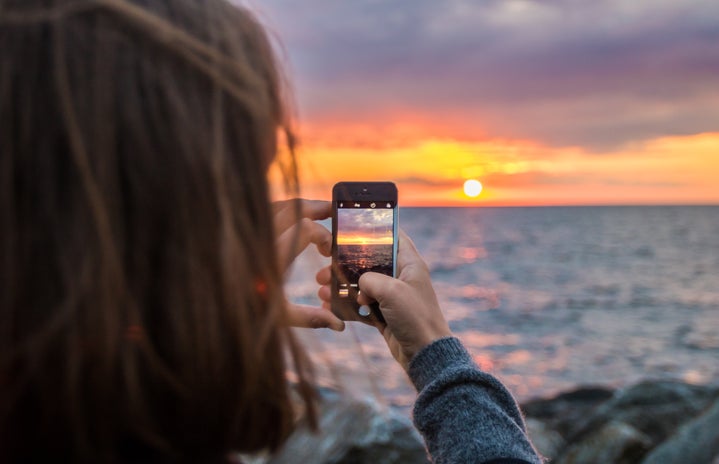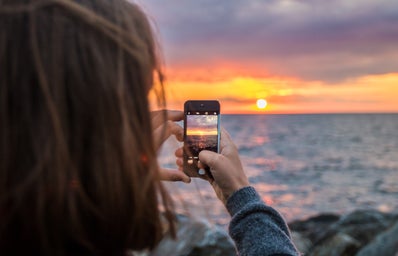Ping!
Bleep!
Ding!
We’ve all been there. It’s a Friday night and your phone is abuzz with text messages, notifications, and funny little GIFs your friends are sending you. It’s not just that these constant rings and bleeps are distractions. No, it’s much more than that. And while it’s always nice to know that people want to talk to you, it shouldn’t be shameful to admit that the 24/7 notifications can get more than a little overwhelming.
If you’re anything like me, you’re probably a 21st century millennial glued to your phone and laptop. And if you’re anything like ¼ of the college population, you may deal with anxiety. Put the constant oversaturation of information and nerve-wrecking anxiousness together and you get a match made in hell. It’s not just traditional sources of distraction like Facebook and text messages that can be anxiety inducing; it’s also the school-related apps like Gmail and Google Calendar that can be a source of stress as well. So when you’re perusing through your phone frantically at 1 AM, it’s justified. After all, it’s for school, so how can you put it down?
Well, world-renowned TV producer Shonda Rhimes once said, “Since turning off my phone at 7 p.m., there’s never been a thing so urgent that I regret having my phone off.” If a busy career woman like Shonda can do it, so can you. Yet in our day in age, it isn’t just as simple as that. There are parties to go to and places to be. So here are 3 variations of the “turn it off before 7 PM” trick that can help reduce the anxiety that social media can cause.
1. Social media detox
The social media detox is the Hail Mary of reducing your intake. It’s for when everything is so utterly overwhelming that you absolutely cannot handle it anymore. It’s a quick fix, but an extremely effective one. With the social media detox it’s absolutely essential to block your access to social media, whether that means giving your accounts to a trusted friend or using other apps (like Tomato Timer on Google Chrome) to block your access to certain websites. While it takes a little bit of getting used to, I always feel better at the end of my social media detoxes and I guarantee that you will too.
2. Turn off the notifications
If cutting cold turkey is not ideal for you, you may want to try turning off your notifications for certain apps. While I still allow my text messages to give me notifications, I turn off everything from Facebook to Snapchat to Instagram and this has helped immensely. At first, it may increase your compulsion to constantly check the apps, but after a while, once they’re not in your face so often, it becomes much easier to just forget about them and do someone more productive and less anxiety-inducing with your time.
3. Delete the excess
Finally, this is the most permanent of solutions, the one you use when you’re ready to implement real change in your life. Delete your excess accounts. Do you really need everything from Snapchat to Instagram to Kik to Facebook to Twitter to Tinder? No. You really don’t. Decide on which apps matter to you and which you can do without, then hold your apps down and click that X to say goodbye (and good riddance!) forever.
So go ahead, try one (or all three) of these techniques and see if you can reduce the anxiety in your life as well!


